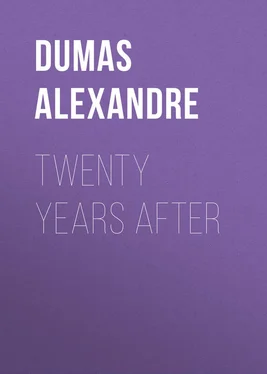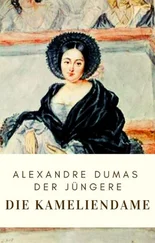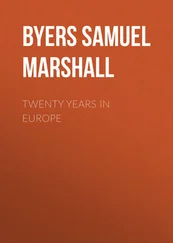Alexandre Dumas - Twenty Years After
Здесь есть возможность читать онлайн «Alexandre Dumas - Twenty Years After» — ознакомительный отрывок электронной книги совершенно бесплатно, а после прочтения отрывка купить полную версию. В некоторых случаях можно слушать аудио, скачать через торрент в формате fb2 и присутствует краткое содержание. Жанр: literature_19, foreign_antique, foreign_prose, на английском языке. Описание произведения, (предисловие) а так же отзывы посетителей доступны на портале библиотеки ЛибКат.
- Название:Twenty Years After
- Автор:
- Жанр:
- Год:неизвестен
- ISBN:нет данных
- Рейтинг книги:5 / 5. Голосов: 1
-
Избранное:Добавить в избранное
- Отзывы:
-
Ваша оценка:
- 100
- 1
- 2
- 3
- 4
- 5
Twenty Years After: краткое содержание, описание и аннотация
Предлагаем к чтению аннотацию, описание, краткое содержание или предисловие (зависит от того, что написал сам автор книги «Twenty Years After»). Если вы не нашли необходимую информацию о книге — напишите в комментариях, мы постараемся отыскать её.
Twenty Years After — читать онлайн ознакомительный отрывок
Ниже представлен текст книги, разбитый по страницам. Система сохранения места последней прочитанной страницы, позволяет с удобством читать онлайн бесплатно книгу «Twenty Years After», без необходимости каждый раз заново искать на чём Вы остановились. Поставьте закладку, и сможете в любой момент перейти на страницу, на которой закончили чтение.
Интервал:
Закладка:
“Ah, sir!” answered Raoul, “you joke about a real misfortune; that is cruel, indeed.”
The good understanding between the two friends was not in the least altered by the morning’s skirmish. They breakfasted with a good appetite, looking now and then at poor Raoul, who with moist eyes and a full heart, scarcely ate at all.
After breakfast two letters arrived for Athos, who read them with profound attention, whilst D’Artagnan could not restrain himself from jumping up several times on seeing him read these epistles, in one of which, there being at the time a very strong light, he perceived the fine writing of Aramis. The other was in a feminine hand, long, and crossed.
“Come,” said D’Artagnan to Raoul, seeing that Athos wished to be alone, “come, let us take a turn in the fencing gallery; that will amuse you.”
And they both went into a low room where there were foils, gloves, masks, breastplates, and all the accessories for a fencing match.
In a quarter of an hour Athos joined them and at the same moment Charles brought in a letter for D’Artagnan, which a messenger had just desired might be instantly delivered.
It was now Athos’s turn to take a sly look.
D’Artagnan read the letter with apparent calmness and said, shaking his head:
“See, dear friend, what it is to belong to the army. Faith, you are indeed right not to return to it. Monsieur de Treville is ill, so my company can’t do without me; there! my leave is at an end!”
“Do you return to Paris?” asked Athos, quickly.
“Egad! yes; but why don’t you come there also?”
Athos colored a little and answered:
“Should I go, I shall be delighted to see you there.”
“Halloo, Planchet!” cried the Gascon from the door, “we must set out in ten minutes; give the horses some hay.”
Then turning to Athos he added:
“I seem to miss something here. I am really sorry to go away without having seen Grimaud.”
“Grimaud!” replied Athos. “I’m surprised you have never so much as asked after him. I have lent him to a friend-”
“Who will understand the signs he makes?” returned D’Artagnan.
“I hope so.”
The friends embraced cordially; D’Artagnan pressed Raoul’s hand.
“Will you not come with me?” he said; “I shall pass by Blois.”
Raoul turned toward Athos, who showed him by a secret sign that he did not wish him to go.
“No, monsieur,” replied the young man; “I will remain with monsieur le comte.”
“Adieu, then, to both, my good friends,” said D’Artagnan; “may God preserve you! as we used to say when we said good-bye to each other in the late cardinal’s time.”
Athos waved his hand, Raoul bowed, and D’Artagnan and Planchet set out.
The count followed them with his eyes, his hands resting on the shoulders of the youth, whose height was almost equal to his own; but as soon as they were out of sight he said:
“Raoul, we set out to-night for Paris.”
“Eh?” cried the young man, turning pale.
“You may go and offer your adieux and mine to Madame de Saint-Remy. I shall wait for you here till seven.”
The young man bent low, with an expression of sorrow and gratitude mingled, and retired in order to saddle his horse.
As to D’Artagnan, scarcely, on his side, was he out of sight when he drew from his pocket a letter, which he read over again:
“Return immediately to Paris. – J. M-.”
“The epistle is laconic,” said D’Artagnan; “and if there had not been a postscript, probably I should not have understood it; but happily there is a postscript.”
And he read that welcome postscript, which made him forget the abruptness of the letter.
“P. S. – Go to the king’s treasurer, at Blois; tell him your name and show him this letter; you will receive two hundred pistoles.”
“Assuredly,” said D’Artagnan, “I admire this piece of prose. The cardinal writes better than I thought. Come, Planchet, let us pay a visit to the king’s treasurer and then set off.”
“Toward Paris, sir?”
“Toward Paris.”
And they set out at as hard a canter as their horses could maintain.
16. The Duc de Beaufort
The circumstances that had hastened the return of D’Artagnan to Paris were as follows:
One evening, when Mazarin, according to custom, went to visit the queen, in passing the guard-chamber he heard loud voices; wishing to know on what topic the soldiers were conversing, he approached with his wonted wolf-like step, pushed open the door and put his head close to the chink.
There was a dispute among the guards.
“I tell you,” one of them was saying, “that if Coysel predicted that, ‘tis as good as true; I know nothing about it, but I have heard say that he’s not only an astrologer, but a magician.”
“Deuce take it, friend, if he’s one of thy friends thou wilt ruin him in saying so.”
“Why?”
“Because he may be tried for it.”
“Ah! absurd! they don’t burn sorcerers nowadays.”
“No? ‘Tis not a long time since the late cardinal burnt Urban Grandier, though.”
“My friend, Urban Grandier wasn’t a sorcerer, he was a learned man. He didn’t predict the future, he knew the past-often a more dangerous thing.”
Mazarin nodded an assent, but wishing to know what this prediction was, about which they disputed, he remained in the same place.
“I don’t say,” resumed the guard, “that Coysel is not a sorcerer, but I say that if his prophecy gets wind, it’s a sure way to prevent it’s coming true.”
“How so?”
“Why, in this way: if Coysel says loud enough for the cardinal to hear him, on such or such a day such a prisoner will escape, ‘tis plain that the cardinal will take measures of precaution and that the prisoner will not escape.”
“Good Lord!” said another guard, who might have been thought asleep on a bench, but who had lost not a syllable of the conversation, “do you suppose that men can escape their destiny? If it is written yonder, in Heaven, that the Duc de Beaufort is to escape, he will escape; and all the precautions of the cardinal will not prevent it.”
Mazarin started. He was an Italian and therefore superstitious. He walked straight into the midst of the guards, who on seeing him were silent.
“What were you saying?” he asked with his flattering manner; “that Monsieur de Beaufort had escaped, were you not?”
“Oh, no, my lord!” said the incredulous soldier. “He’s well guarded now; we only said he would escape.”
“Who said so?”
“Repeat your story, Saint Laurent,” replied the man, turning to the originator of the tale.
“My lord,” said the guard, “I have simply mentioned the prophecy I heard from a man named Coysel, who believes that, be he ever so closely watched and guarded, the Duke of Beaufort will escape before Whitsuntide.”
“Coysel is a madman!” returned the cardinal.
“No,” replied the soldier, tenacious in his credulity; “he has foretold many things which have come to pass; for instance, that the queen would have a son; that Monsieur Coligny would be killed in a duel with the Duc de Guise; and finally, that the coadjutor would be made cardinal. Well! the queen has not only one son, but two; then, Monsieur de Coligny was killed, and-”
“Yes,” said Mazarin, “but the coadjutor is not yet made cardinal!”
“No, my lord, but he will be,” answered the guard.
Mazarin made a grimace, as if he meant to say, “But he does not wear the cardinal’s cap;” then he added:
“So, my friend, it’s your opinion that Monsieur de Beaufort will escape?”
“That’s my idea, my lord; and if your eminence were to offer to make me at this moment governor of the castle of Vincennes, I should refuse it. After Whitsuntide it would be another thing.”
Читать дальшеИнтервал:
Закладка:
Похожие книги на «Twenty Years After»
Представляем Вашему вниманию похожие книги на «Twenty Years After» списком для выбора. Мы отобрали схожую по названию и смыслу литературу в надежде предоставить читателям больше вариантов отыскать новые, интересные, ещё непрочитанные произведения.
Обсуждение, отзывы о книге «Twenty Years After» и просто собственные мнения читателей. Оставьте ваши комментарии, напишите, что Вы думаете о произведении, его смысле или главных героях. Укажите что конкретно понравилось, а что нет, и почему Вы так считаете.


![О Генри - Через двадцать лет [After Twenty Years]](/books/415401/o-genri-cherez-dvadcat-let-after-twenty-years-thumb.webp)









